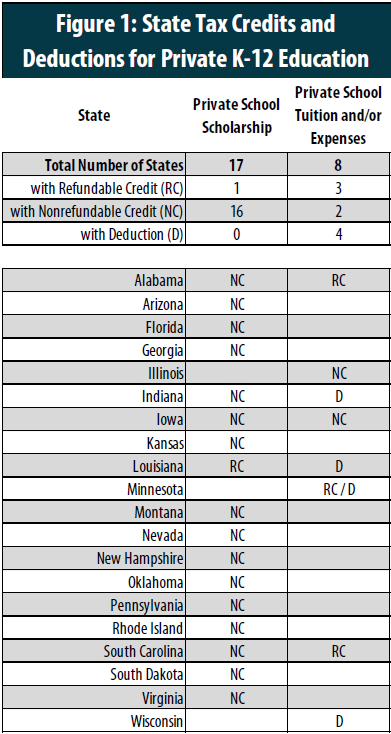The excellent education reporter Laura Meckler has written a terrific article in The Washington Post titled “Public education is facing a crisis of epic proportions“. Indeed.
Test scores are down, and violence is up. Parents are screaming at school boards, and children are crying on the couches of social workers. Anger is rising. Patience is falling.
For public schools, the numbers are all going in the wrong direction. Enrollment is down. Absenteeism is up. There aren’t enough teachers, substitutes or bus drivers. Each phase of the pandemic brings new logistics to manage, and Republicans are planning political campaigns this year aimed squarely at failings of public schools.
Public education is facing a crisis unlike anything in decades, and it reaches into almost everything that educators do: from teaching math, to counseling anxious children, to managing the building.
She wrote about the nation as a whole, but the same crises plague public education in Virginia.
Virginia, led by its Governor and General Assembly, must deal with it.
While we must improve every school over time, the most immediate approach for poor kids stuck in an underperforming school is school choice. Parents understandably don’t want to wait.
Most of the worst schools have a chicken and egg issue — bad classroom discipline and bad learning. Read Ms. Meckler’s column in which she describes an utter breakdown of classroom discipline. We must ensure discipline in every underperforming school while we work on better instruction and learning.
The Governor ran on both improving every school and on school choice.
School choice is a very attractive option to parents, thus voters, precisely because it can be both effective and immediate. School choice offers access to a known quantity, to a school that provides both classroom discipline and SOL scores that demonstrate good learning happens there.
Parents of every economic level, race and ethnicity want a school like that for their kids. There are no exceptions.
Some get it in their neighborhood school, or district. Some don’t. No parent wants their kid to wait for next year, or next decade.
School Choice as a Means of Improvement in Public Education
The Governor believes in competition as a change agent. Open enrollment, charter schools, vouchers, tax credits and deductions, and virtual public schools are forms of school choice — competition.
We will need a balance of school choice options to offer better public education quickly. The potential combinations and permutations are endless, but we need to get started and pick a Virginia way to do it.
I will offer some proven approaches.
School Choice – Open Enrollment.
Forty-seven states plus the District of Columbia have state policies addressing open enrollment in some way.
State open enrollment laws specify either voluntary or mandatory and intra-district or inter-district school choice.
Virginia’s law permits voluntary intra-district open enrollment. Local school boards may establish open enrollment policies allowing students to attend another school within the district.
For example, Richmond Public Schools (RPS) has intra-district open enrollment. That means parents can sign their children up for any RPS school they can transport their kids to. Seat offers are determined via a random lottery that is run each spring.
Virginia can consider broadening its open enrollment law to mandatory inter-district to improve school choice. Other states have been successful with that option.
Arkansas has laws I find potentially attractive for Virginia. It has chosen mandatory inter-district, with some limitations. Students may apply to transfer to a school in any school district.
In that state, in each school year “sending” school districts are subject to a limit on the number of school choice transfers they may allow. Three percent maximum. But there is no maximum for transfers of students from a failing school district.
Pick a favorite state policy of your own, or none of them. But a change to Virginia law will need to provide instructions on the designation of a school district as failing. A clear, concise definition. No waivers.
School Choice – Charter Schools
If we are to increase charter schools as a mechanism for competition and choice, we should do it right. I have recommended increasing the number of charter schools, but also targeting such schools to help poor and minority children.
Charter management organizations (CMOs), non-profits who operate two or more charter schools, focus on educating (poor and minority children). The best, like New York’s Success Academy, have produced spectacular results with the very kids whom many Virginia schools are failing. But they will not locate in Virginia right now due to our laws. They would not be able to operate here in the manner that has made them successful.
Virginia is rated by the National Alliance for Public Charter Schools (NAPCS) as sixth worst state of 44 in the friendliness of our charter laws to charter school establishment and operation. NAPCS publishes a model law that can guide the necessary revisions.
So change Virginia law. Do charter schools right. Target charter schools for poor and minority kids.
School Choice – Vouchers
The National Conference of State Legislatures maintains a state-by-state comparison of voucher laws. Indiana’s voucher system, its Choice Scholarship Program, is the largest in the country. They have experience with it. Start there.
School Choice – Tax Credits and Deductions
The Institution on Taxation and Economic Policy (ITEP), which has a dim view of such policies, nonetheless keeps track of State Tax Subsidies for Private K-12 Education and shares them with us.
From that article:
ITEP describes such policies as “back-door vouchers.” I personally prefer a more straightforward approach than the tax code.
School Choice – Virtual Public Schools
Thousands of Virginians for a variety of reasons choose every year to educate their children in full time virtual public schools. The status quo in Virginia is indefensible. I published an eight-part series on the problems.
I listed five strategic issues.
- Conflicts of Interests at VDOE;
- Virginia’s various laws, regulations and funding streams create a “system” that is no system at all;
- Costs to the taxpayers of the state-run virtual school are undefined;
- Reporting is utterly inadequate;
- The current contracting system supports neither parents, school divisions nor providers.
The series exposed those issues in considerable depth. My recommendations were quite specific.
Next. Choice is a place to start, but not nearly all of the issues in Virginia public schools will be addressed fully in that way, even if we do it.
I will address the issues and other options in future posts.



Leave a Reply
You must be logged in to post a comment.